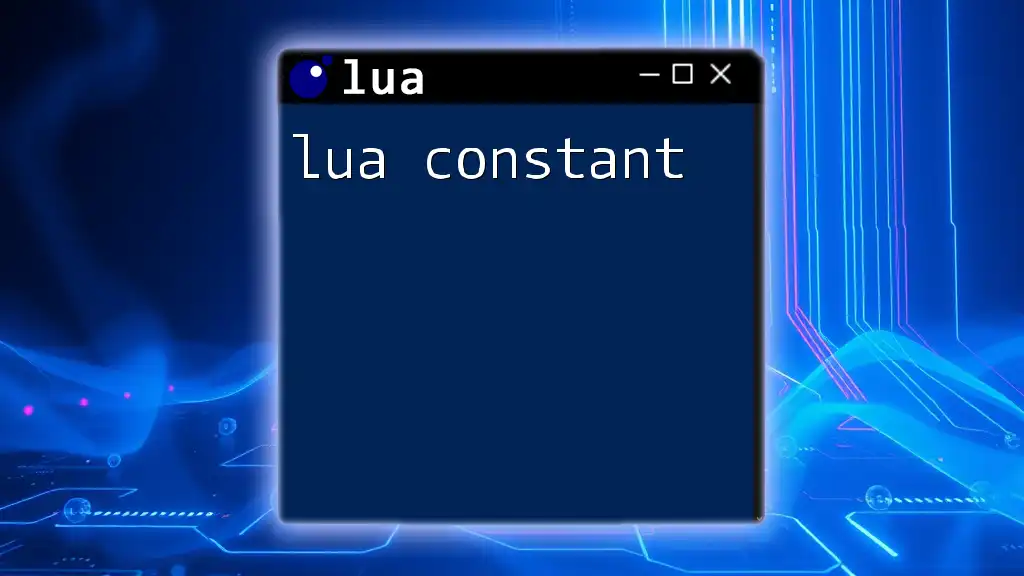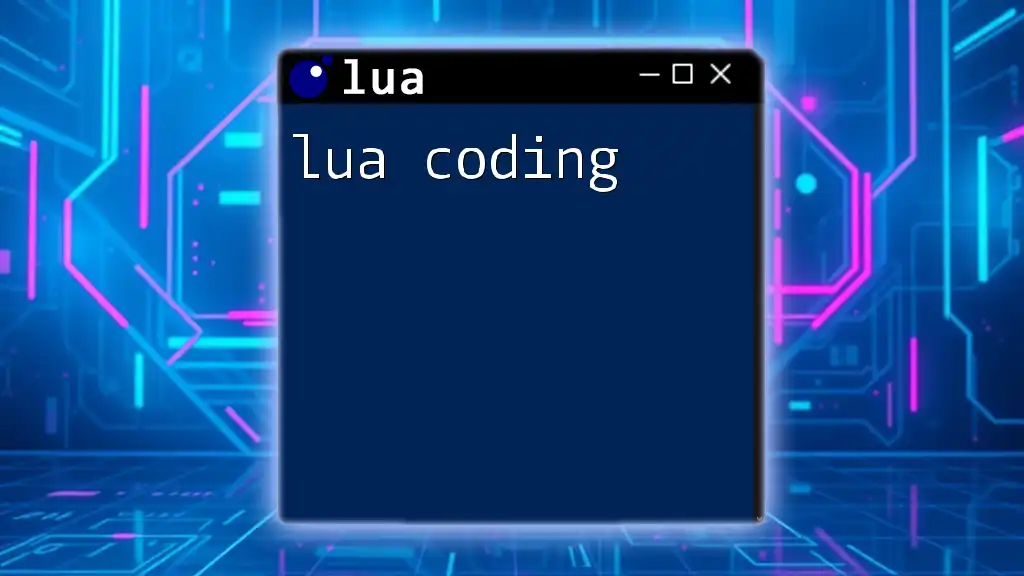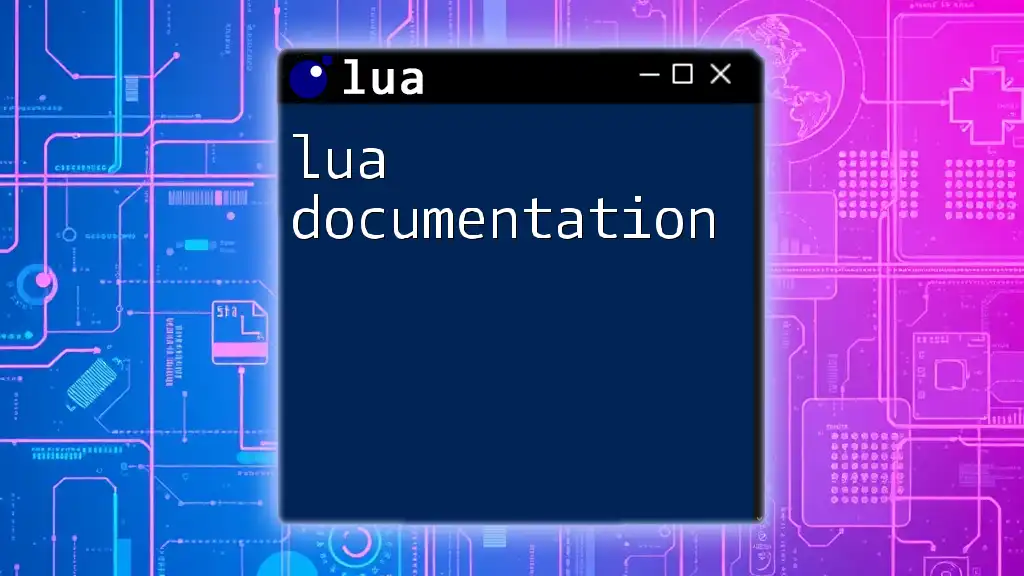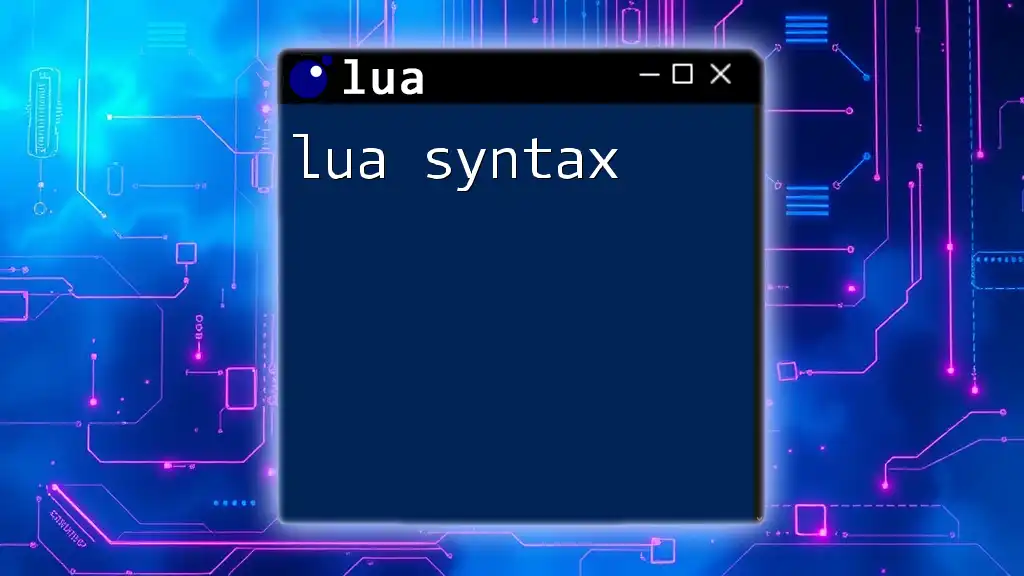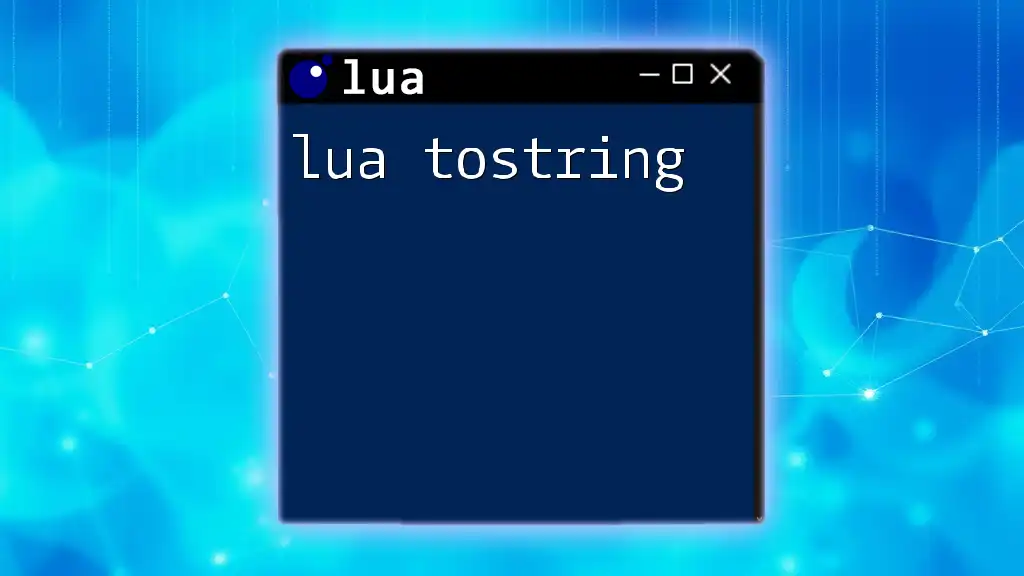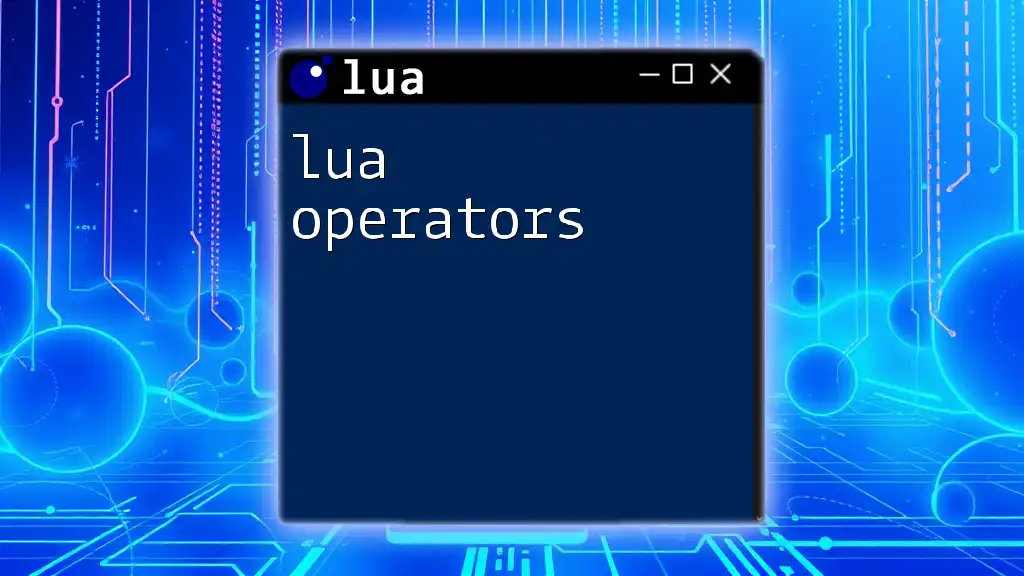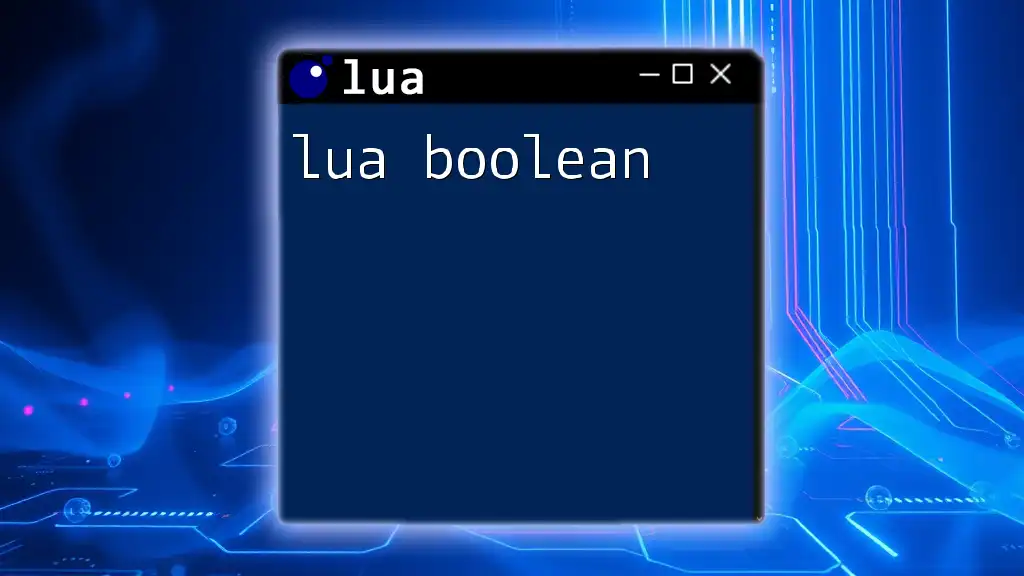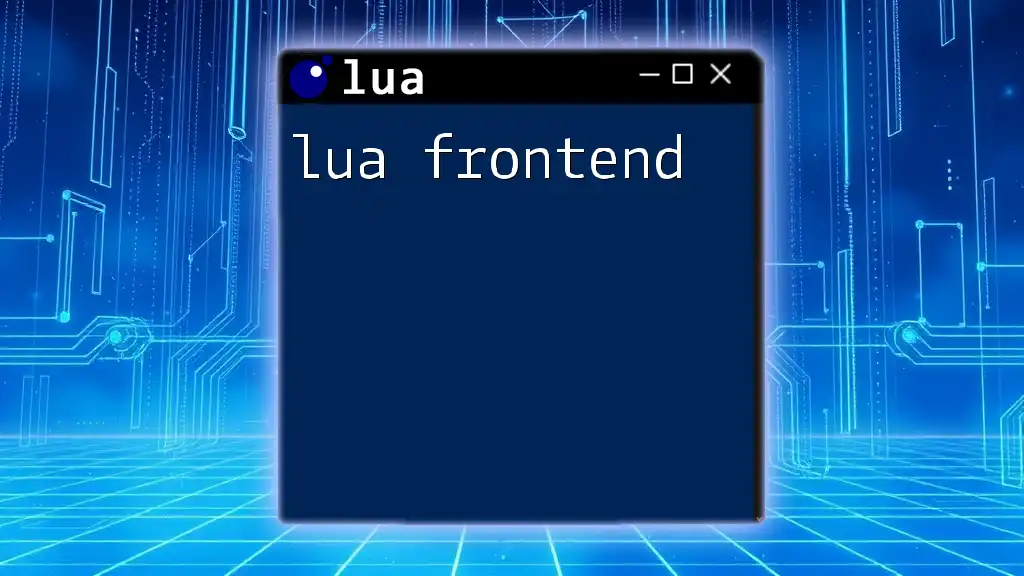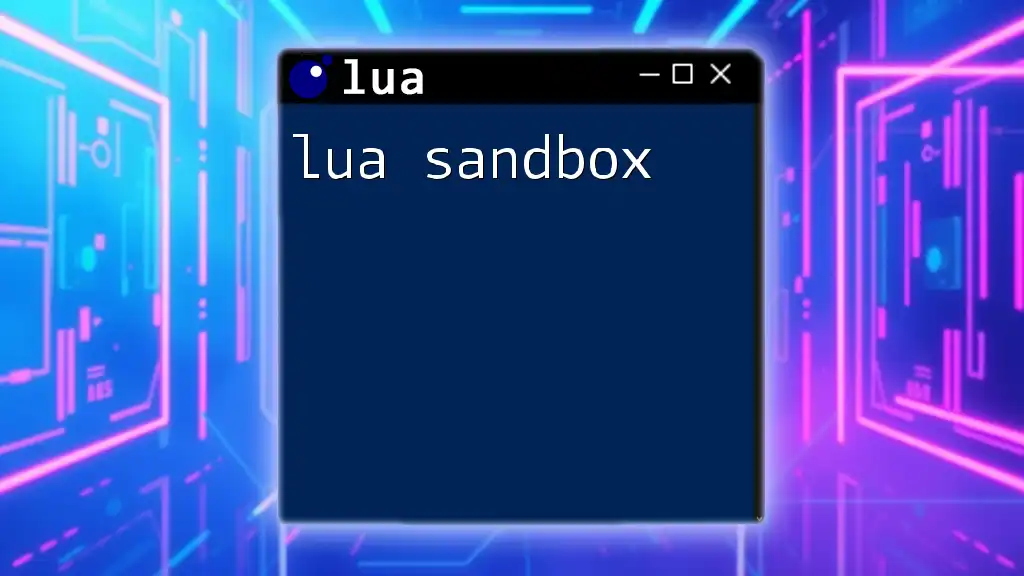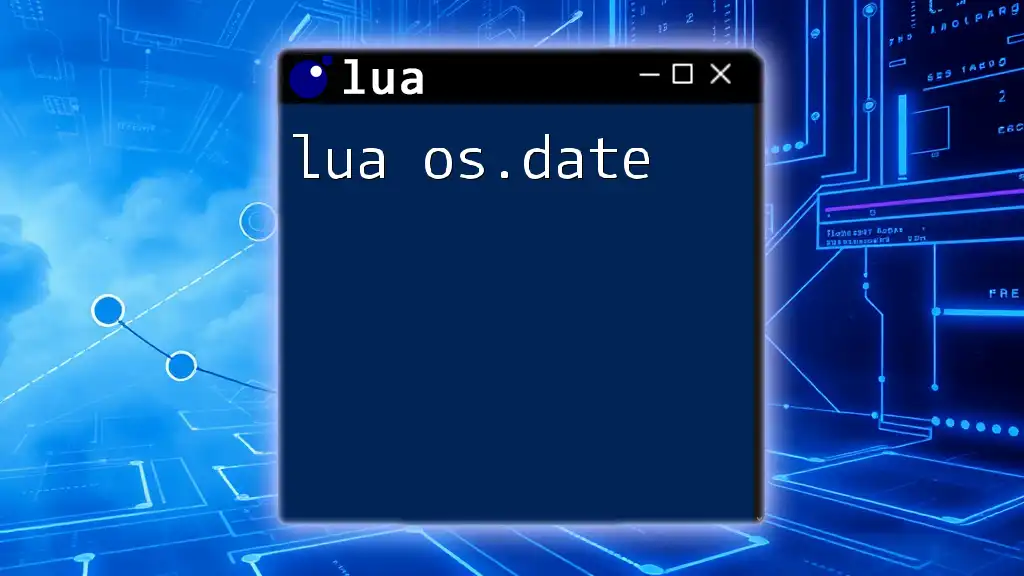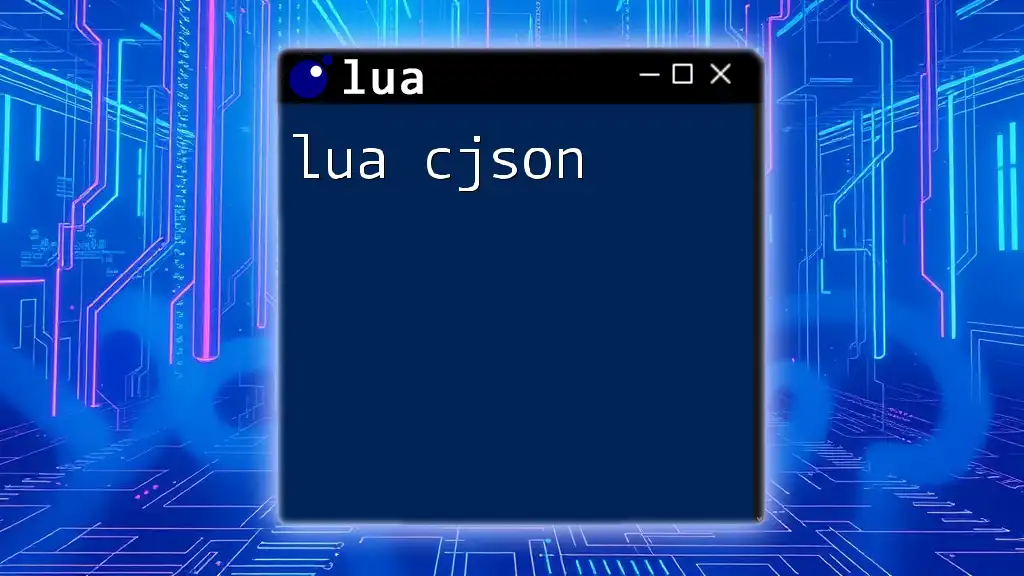A Lua constant is a variable that cannot be changed after its initial assignment, often used to define immutable values that enhance code clarity and prevent accidental modifications.
local Pi = 3.14159 -- Pi is a constant value representing the ratio of a circle's circumference to its diameter
What are Lua Constants?
In the context of Lua programming, a constant is a value that remains unchanged throughout the execution of a program. Unlike variables, which can be modified at any time, constants have a fixed value once they are defined. This fixed nature of constants is crucial, especially when we want to avoid unintended changes to values that should remain stable.
To understand the utility of constants, it is essential to differentiate them from variables. Variables are containers for data that can be changed, whereas constants represent data that remains immutable.
Some common use cases for constants include defining mathematical constants, configuration settings, or any value that should not change during the program's lifetime, such as thresholds or limits in an application.
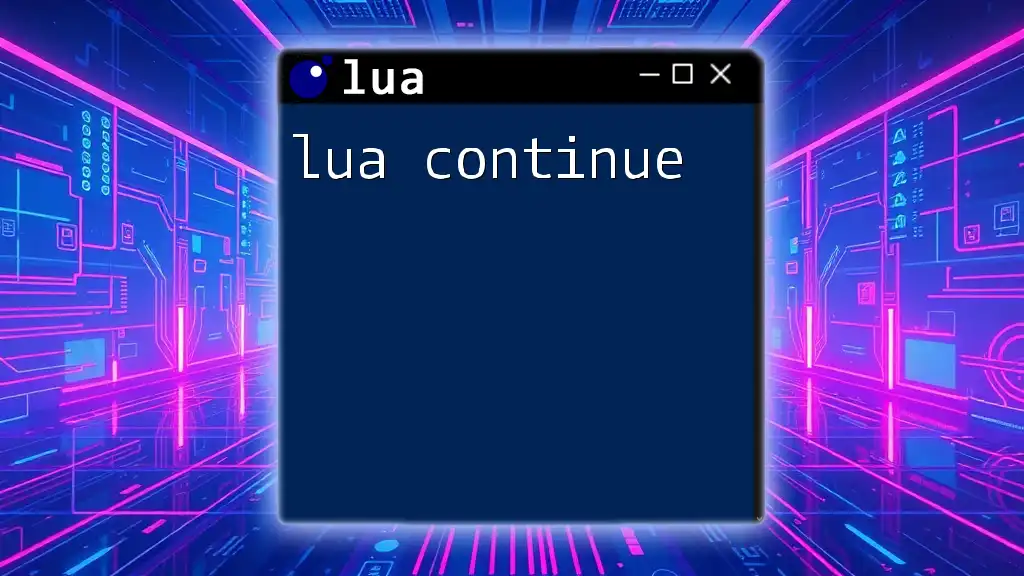
Creating Constants in Lua
Using Local Variables as Constants
The most common way to define a constant in Lua is by using the `local` keyword. By defining a variable as local, you restrict its scope to the block where it is declared. This practice inherently encourages the use of constants since you can typically expect local variables to remain unchanged throughout their scope.
For example, the following code snippet defines a constant for the value of pi:
local PI = 3.14
In this case, `PI` is meant to hold the value of π, and its purpose is clear. However, it's important to understand that while using `local` signals that this variable should not change frequently, it does not enforce immutability.
Naming Conventions for Constants
When creating constants, following consistent naming conventions enhances readability. It is a widely accepted practice to use uppercase letters for constants, often separating words with underscores.
Example:
local MAX_CONNECTIONS = 100
In this instance, `MAX_CONNECTIONS` is clearly identifiable as a constant, making it evident to anyone reading the code that this value should remain unchanged throughout its lifetime.
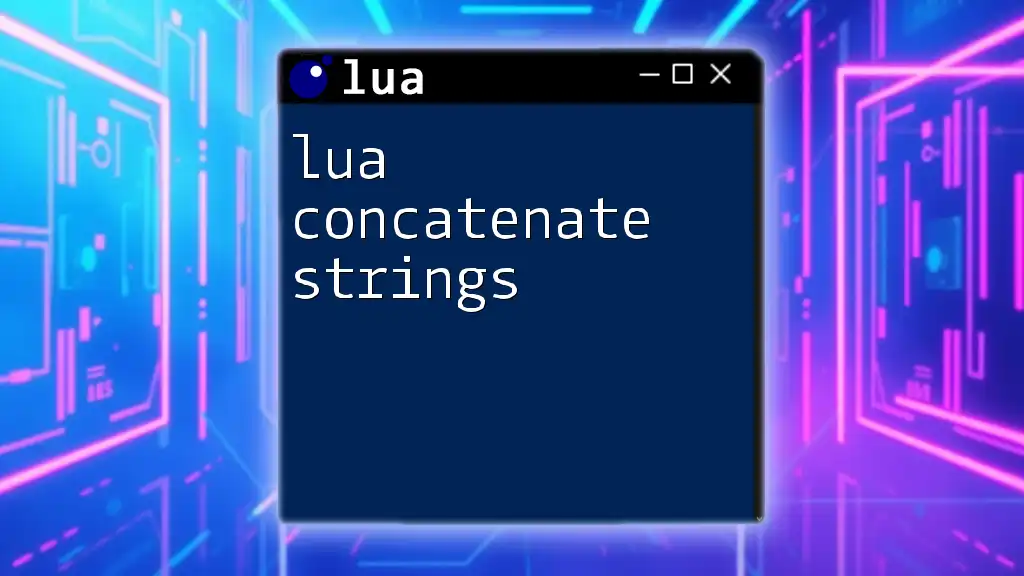
Scope of Lua Constants
Local Scope
In Lua, when you define a constant using the `local` keyword, its visibility is confined to the block it was declared in. For instance:
local THREAD_LIMIT = 16
Here, `THREAD_LIMIT` can only be accessed within the block where it is defined. This local scope is beneficial for maintaining code modularity and avoiding unintended interactions between code sections.
Global Scope
Conversely, if a constant is declared without `local`, its scope becomes global, allowing access from anywhere within the code. For example:
GLOBAL_CONSTANT = "This is globally accessible"
While global constants can be useful, they can also lead to naming collisions or ambiguity. Developers must restore caution, especially in larger codebases, as global variables can be modified from any part of the program.
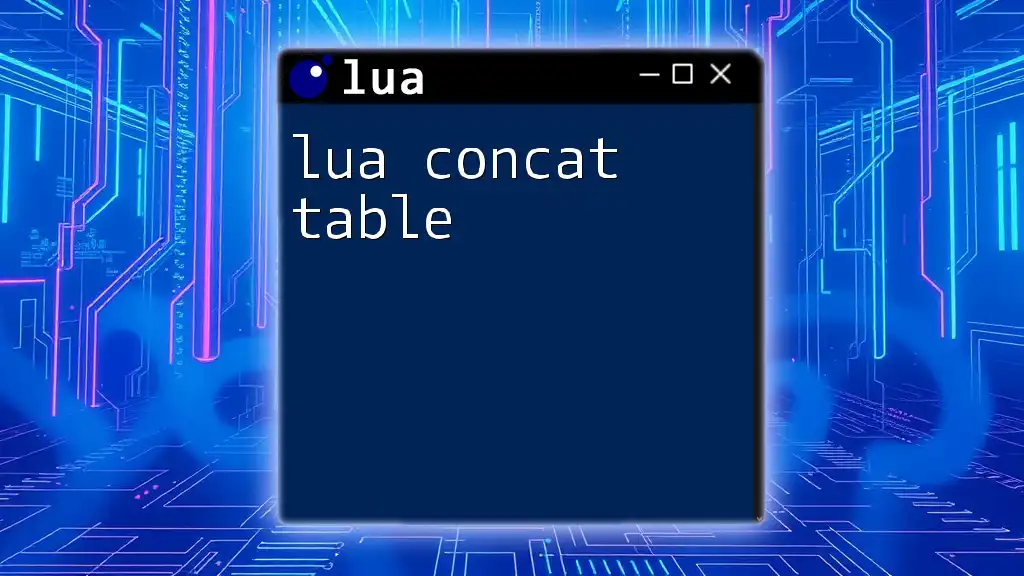
Best Practices for Using Constants in Lua
Utilize Constants for Configuration Settings
Constants are particularly advantageous when used for configuration settings. By defining such values as constants, you can ensure that the application behaves predictably across different environments, reducing the risk of errors due to accidental changes.
For example:
local DATABASE_URL = "https://mydatabase.com"
Declaring `DATABASE_URL` as a constant makes it clear that it should not be modified, promoting better practice and organization within your code.
Improving Code Readability and Maintainability
Constants also significantly enhance the code's readability and maintainability. When you refactor code to replace repeated literals with named constants, the functionality becomes clearer and easier to understand.
For instance, consider the following refactoring:
Instead of:
local areaCircle = radius * radius * 3.14
Use:
local PI = 3.14
local areaCircle = radius * radius * PI
This change not only enhances clarity but also simplifies updates; updating the value of `PI` in one location automatically updates all usages throughout your code.
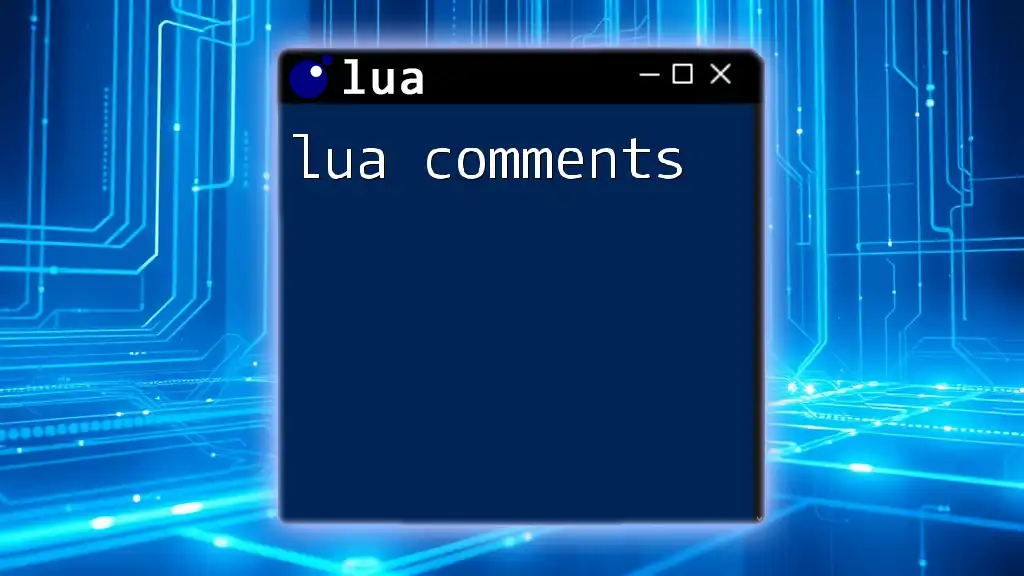
Limitations of Constants in Lua
Immaturity of None-Immutable Constants
Despite the naming conventions and practices, Lua does not support true constant immutability. This flexibility can lead to potential misuses, as constants can still be reassigned.
For example, you can mistakenly modify a constant:
local PI = 3.14
PI = 3.14159 -- This is allowed but not recommended
While technically possible, overwriting constants is discouraged because it undermines their purpose, which is to provide values that should remain the same.
Runtime Errors Due to Overwriting
Constants that are inadvertently reassigned can lead to runtime errors or unexpected behavior in your application, making debug processes tedious. To prevent such pitfalls, it’s vital to adopt a coding discipline where constants are never altered after their initial definition. Awareness and strict adherence to this guideline will help maintain the integrity of the code.
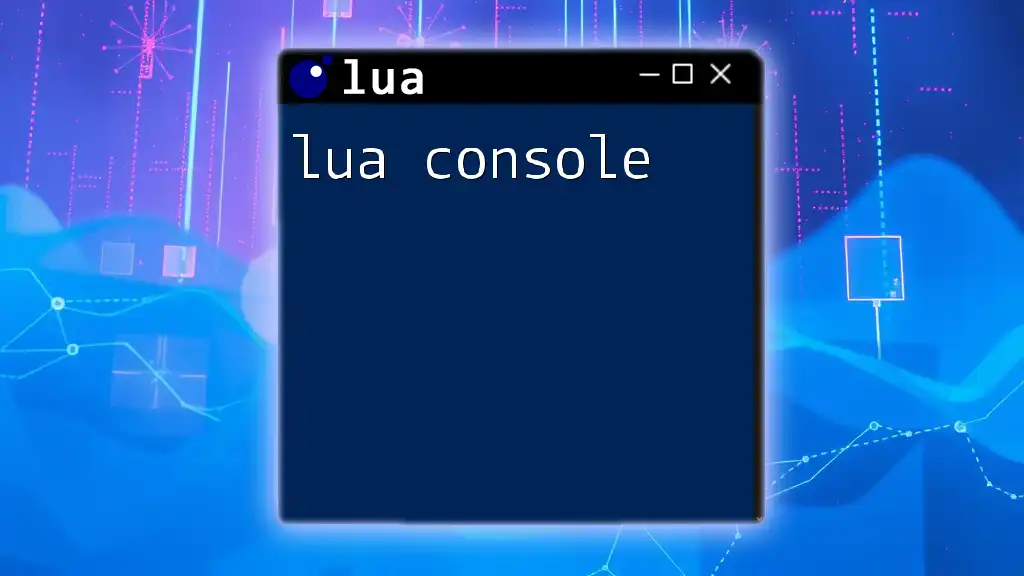
Conclusion
In summary, utilizing Lua constants is an essential practice in programming, offering clarity, stability, and enhanced code quality. By adhering to conventions, defining constants for crucial configurations, and maintaining strict coding discipline, developers can improve both readability and maintainability in their Lua applications.
As you explore the realm of Lua programming, take the time to integrate constants into your coding practices. Your code will not only be cleaner but also more robust against the pitfalls of variable reassignment. The journey may begin with constants, but your skills will expand as you delve deeper into Lua’s capabilities.

Additional Resources
For learning more about Lua programming, consider exploring books, online courses, and communities dedicated to Lua. The official Lua documentation is an invaluable resource, providing comprehensive insights into the language's features and functionalities.
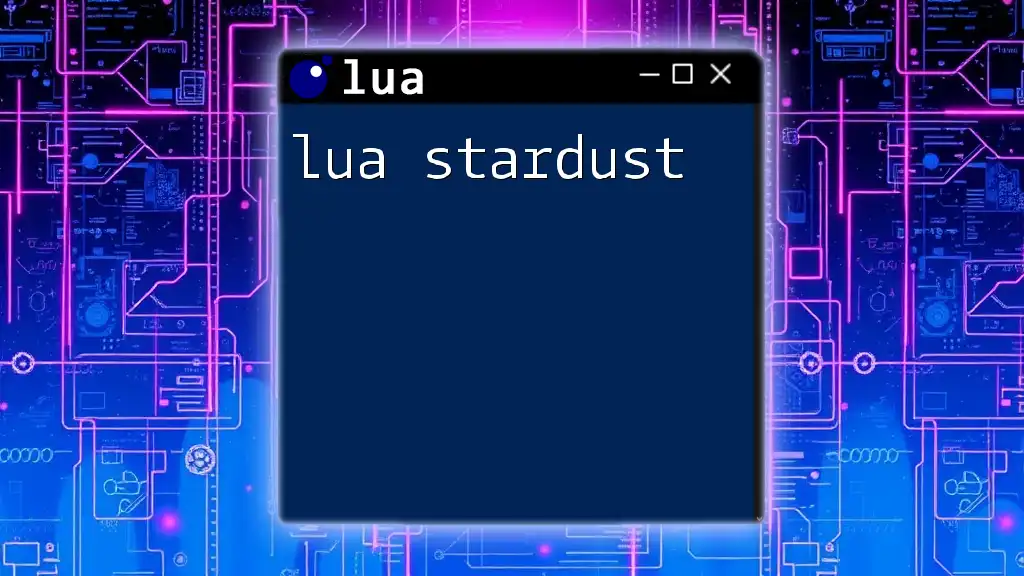
FAQs
Can a constant be changed in Lua?
While constants are intended to remain unchanged, Lua does not enforce this, and constants can technically be reassigned. Therefore, it is essential to maintain best practices to avoid reassigning defined constants.
What are some real-world applications of constants in Lua?
Constants in Lua find use in various applications, such as defining configuration constants, setting up thresholds for game development, or managing fixed settings in data processing tasks.
Are there built-in constants in Lua?
Lua does not have built-in constants. However, it provides several built-in functions and libraries that can be referenced as needed. While they may not be constants, they can offer default values or behaviors that help maintain consistency throughout your code.

